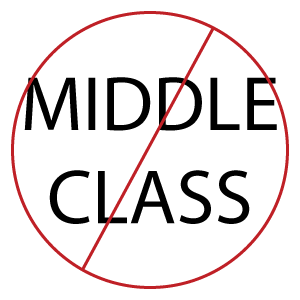 When I opened my email last weekend and saw a message about Rick Santorum from our Executive Director Janet Byrd I was ready to laugh, scoff or harrumph. What I wasn’t ready for was a genuinely useful lesson that may change how we communicate at Neighborhood Partnerships.
When I opened my email last weekend and saw a message about Rick Santorum from our Executive Director Janet Byrd I was ready to laugh, scoff or harrumph. What I wasn’t ready for was a genuinely useful lesson that may change how we communicate at Neighborhood Partnerships.
NP takes words seriously. We train people from across the state and country on how to use the right words to effectively advocate for affordable housing and other issues that build opportunity for all.
We have our own checklist of twelve communications rules that are backed by the best cognitive science and our own experience. We follow them religiously. The one rule we take the most seriously is: don’t “otherize.”
“Otherizing” is any statement that creates an Us vs. Them dynamic. For instance, we say “people experiencing homelessness” or “people with low incomes.” We make that small change because saying “low-income people” or “homeless people” implies a static position in life that defines them and defines them as being different. We’re all people. Some of us have different life circumstances. Those circumstances can change.
What does this have to do with Rick Santorum? How can the man who said these things have something to teach us about inclusive language?
Here’s how MSNBC covered a recent speech:
“Notice I didn’t say middle class,” he said.
“Why do we use a term I should say that is of the other side?” he asked. “Why do we, as Republicans who believe in the dignity of every human life, who believe in equality of opportunity for everyone to rise, adopt a class-envy leftist language that divides America against themselves?”
And later in the same article…
Santorum has criticized the term “middle class” in the past, telling a group of Iowa Republicans in August 2013 that “there’s no class in America.”
“Don’t use the term the other side uses. What does Barack Obama talk about all the time? The middle class,” he said. “Since when in America do we have classes? Since when in America are people stuck in areas or defined places called a class?
He also went on the talk about the term “middle class” being leftist and Marxist, and, yes he used a bunch of divisive partisan language. But, put that aside for a second.
Has the term “middle class” become a divisive norm in all of our language? I know we use the term with some regularity. Maybe “middle class” does imply a static station in life. Maybe it does divide us.
Santorum went on to talk about how inclusive Pope Francis’s language is and how it leads to the Pope being one of the most popular people in the world right now.
So I checked out some of the Pope’s most recent language and found this statement from a homily he wrote at the end of the year:
Rome is full of people who work, but also of people who cannot find work or perform underpaid and sometimes undignified work, and everyone has the right to be treated equally with an attitude of acceptance and fairness, because everyone is a bearer of human dignity.
Replace “Rome” with “Oregon” and the Pope is pretty spot-on with language we hope to use. It has nothing to do with class.
The most insidious thing about “otherizing” is how difficult it can be to spot. Divisive language is so ingrained in our lexicon, that even people who think long and hard about these things can miss it.
[Tweet “The most insidious thing about “otherizing” is how difficult it can be to spot. “]
One of our other communications principles at NP is to use unexpected messengers because they can deliver old messages in new ways that jar us awake. As a nonpartisan, secular nonprofit we do not endorse Mr. Santorum or Pope Francis, but we can appreciate the value they have as unexpected messengers. After all, truly embracing inclusivity isn’t just a messaging tactic. It is about having an open mind and heart to all people.
